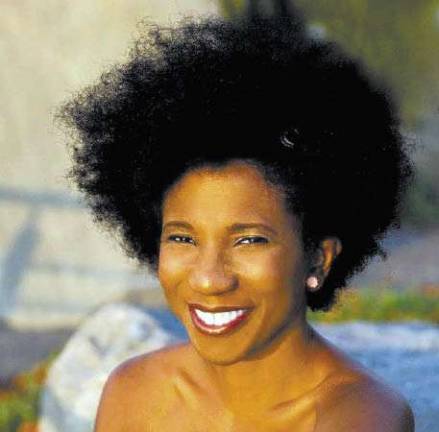Laughter Wants Respect

A reality TV producer brings comedians to parks around the city for free, family-friendly shows
Central Park Suzette Simon wants the world to take comedy as seriously as any other art form. She's preparing for the start of the eighth season of Laughter in the Park, the outdoor comedy series that she founded in 2007, which has been responsible for bringing over 50 shows to 10,000 New Yorkers. Just as people make it a point to see Shakespeare or Swan Lake, Simon wants standup in the park to be an essential summer offering.
Simon started doing comedy after working as a producer on the TV show "Queer Eye for the Straight Guy." She would make her friends laugh with stories about trying to track down people to appear on the show.
"Once I didn't realize the guy I was talking to was actually a pimp," Simon said.
Simon didn't know how to get started as a comedian, so she started doing routines in subway stations, a venue with its own unique challenges. "Cops are the worst critics. They just kept throwing me out," she said.
In 2007 Simon decided to form an outdoor comedy series, so she could get some stage time.
The first year didn't go so well. "The sky got darker and darker," Simon said. "By the time the headliner arrived you could hear the crickets and this one bum growling. It was just horrendous."
But the second year, she learned more about which spaces worked for outdoor comedy, put up posters and people showed up. For some it was their first time seeing live comedy and they liked it so much they hugged her after the show.
Last year she received a grant from The Madison Square Garden Company that allowed her to put on six shows, pay for all her expenses and pay all the performers. But this year she didn't receive the funding because, she says, the foundation wasn't convinced that comedy was a serious art form.
"They don't understand that the guy that really makes you laugh on a stage has been in basements and alleys and dark theaters and bars for the last five years," Simon said.
Because her nonprofit NYLaughs doesn't have a lot of money, she has to wait until a couple of weeks before the events to confirm that her comedians don't have any better paying gigs. Because most of them are performing outside for the first time and they can only do clean material, Simon says, "It's the first time they've ever been able to perform in front of their kids: their kids can't go to clubs."
The audiences in the park tend to reflect the full diversity of the city. "It's not just all comedy about white Jewish men," Simon said. "It's families, it's couples, it's people on dates, it's people jogging by to see us. We're a spectacle."
But that spectacle doesn't work everywhere. When she tried to do it at Union Square Park, instead of sitting down to escape the frenzied pace of the city, audience members watched standing up and left without staying for the full 90 minutes. So she limits the shows to a few low-key locations in Manhattan, such as Tompkins Square Park, although she hopes that someday, with more funding, she'll be able to take it to the outer boroughs as well.
Part of her motivation to do philanthropic comedy is to atone for her daytime work as a reality TV producer. She is the person who, after tragedies such as the Boston bombings and Hurricane Sandy, has to call up victims and convince them appear on TV.
"When you see a disaster, you think 'Oh my goodness, I gotta give blood,'" Simon said. "When I see a house falling on a woman, I think 'I hope she can still reach the phone.'"
And partly she just wants to contribute to the city she loves. "I'm from Brooklyn," said Simon. "My heart, my veins pump sewer water."